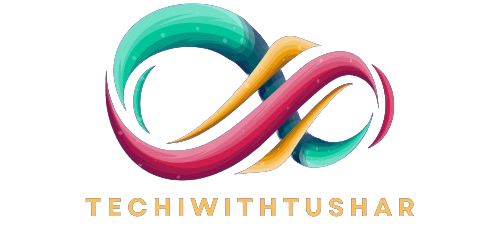What is Debt Consolidation?
Introduction
Debt consolidation is a financial strategy that involves combining multiple debts into a single, more manageable loan. This approach is often used by individuals who are struggling with various debts, such as credit card balances, personal loans, and medical bills. By consolidating these debts, they aim to secure a lower interest rate, reduce their monthly payments, and simplify their financial management. This article will explore the concept of debt consolidation in detail, covering its benefits, potential drawbacks, and the various methods available.
Understanding Debt Consolidation
Debt consolidation is the process of merging multiple debts into one. The primary goal is to make debt repayment more manageable and, ideally, less costly. Here’s how it works:
- Securing a New Loan: The borrower obtains a new loan, typically at a lower interest rate than the existing debts.
- Paying Off Existing Debts: The funds from the new loan are used to pay off the multiple existing debts.
- Repaying the New Loan: The borrower then makes a single monthly payment on the new loan, which should be simpler and more affordable than managing several payments.
Types of Debt Consolidation
There are several methods of debt consolidation, each with its own advantages and potential pitfalls.
- Personal Loans: Borrowers can take out a personal loan from a bank or credit union to pay off their debts. These loans usually have fixed interest rates and terms, making it easier to budget for monthly payments.
- Balance Transfer Credit Cards: Some credit cards offer a balance transfer option with an introductory 0% interest rate for a specified period. Borrowers can transfer their existing credit card debts to this new card and pay off the balance during the interest-free period.
- Home Equity Loans or Lines of Credit (HELOC): Homeowners can use the equity in their homes to secure a loan or line of credit, often at a lower interest rate than other types of loans. This can be a risky option since the home is used as collateral.
- Debt Management Plans (DMP): Through a credit counseling agency, borrowers can enroll in a DMP, where the agency negotiates with creditors to lower interest rates and consolidate payments into one monthly sum.
Benefits of Debt Consolidation
Debt consolidation offers several potential benefits:
- Lower Interest Rates: Consolidating high-interest debts into a single loan with a lower interest rate can save money over time.
- Simplified Payments: Managing one monthly payment is easier than juggling multiple due dates and amounts.
- Reduced Monthly Payments: By extending the loan term, borrowers can often reduce their monthly payments, easing their financial burden.
- Improved Credit Score: Successfully managing a debt consolidation loan can improve a borrower’s credit score by demonstrating consistent, on-time payments and reducing the overall debt-to-credit ratio.
Drawbacks of Debt Consolidation
While debt consolidation can be beneficial, it’s not without its potential drawbacks:
- Longer Repayment Period: Extending the loan term can lower monthly payments but may result in paying more interest over the life of the loan.
- Fees and Costs: Some debt consolidation options come with fees, such as balance transfer fees, loan origination fees, or closing costs for home equity loans.
- Risk of Accumulating More Debt: Without disciplined financial habits, borrowers might continue to accumulate new debt, exacerbating their financial situation.
- Collateral Risk: Using assets like a home or car as collateral for a consolidation loan can be risky. If the borrower defaults, they could lose their property.
Who Should Consider Debt Consolidation?
Debt consolidation is not a one-size-fits-all solution. It is most beneficial for individuals who:
- Have high-interest debt and can secure a lower interest rate through consolidation.
- Struggle to manage multiple monthly payments and would benefit from simplified finances.
- Are committed to not incurring additional debt and can manage a repayment plan responsibly.
Steps to Consolidate Debt
If you’re considering debt consolidation, follow these steps:
- Assess Your Financial Situation: Take stock of all your debts, including balances, interest rates, and monthly payments.
- Research Your Options: Compare different consolidation methods and lenders. Look for terms that best suit your financial situation.
- Check Your Credit Score: Your credit score will influence the interest rates and terms you’re offered. Higher scores typically secure better rates.
- Calculate Potential Savings: Use online calculators to estimate your potential savings. Ensure the new loan’s interest rate and fees don’t outweigh the benefits.
- Apply for a Consolidation Loan: Once you’ve chosen the best option, apply for the loan. Be prepared to provide documentation, such as proof of income and a list of your debts.
- Pay Off Existing Debts: Use the new loan to pay off your existing debts. Ensure all accounts are closed or have zero balances to prevent further use.
- Adopt Responsible Financial Habits: Focus on paying off the new loan and avoid accumulating new debt. Create a budget and stick to it.
Conclusion
Debt consolidation can be an effective strategy for managing and reducing debt. It simplifies finances, potentially lowers interest rates, and can reduce monthly payments. However, it’s crucial to understand the potential risks and ensure it aligns with your financial goals. By carefully evaluating your situation and choosing the right consolidation method, you can take control of your debt and work towards a more secure financial future.

